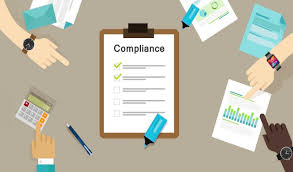BYOD (“Bring Your Own Device”) is becoming an increasingly prevalent mantra in the small business – small law workplace today. Smartphones, tablets, personal notebooks – some or all of these devices are personally owned by many “consumers” today, and increasingly, these “consumers” are preferring to use their own devices in the workplace, where they function not as “consumers” but as “employees”.
As an employer, this offers a mixed blessing. Certainly tech-savvy users, armed and comfortable with their own devices, can be more productive at work and reduce their learning curve with technology. Think of the plumber or other tradesman who brings his own set of tools to the job every day. These electronic mobile devices can be considered the “tools” of the modern information worker.
On the other hand, company data flowing back and forth between business networks and personal devices can compromise confidential or proprietary information, and it can be difficult to “shut off” the employee’s use of personal apps during business hours if that personal device is also used for business. The employer of the tool-toting tradesman doesn’t face the same problem (although materials can – and do – walk off the job from time to time).
“Back in the day” (circa the 1990’s) the big issue for corporate IT was whether or not to allow Palms and other PDA’s into the workplace. With the explosion of consumer-driven devices that can also be productive workplace tools, running business apps, this issue has become immensely more complicated. And with data increasingly moving to “the cloud” from on-premises servers, it has become so much easier to provide 24/7 access to documents, billing records, calendars, etc. from multiple portable devices. “Yeah, there’s an app for that….”
Virtually all of the products that we support, for time billing, practice management, and document management, have published apps that facilitate the easy and seamless flow of company data from servers to remote devices, and back in the other direction as well. We believe that this is a good thing. But like all good things, it can be done correctly or incorrectly, and thus requires a bit of thoughtful planning and a good grasp of the underlying technology to harness this mobile capability without also putting your company’s information at risk.
As technology proliferates in the small business – small law environment, the need for technology advice grows accordingly. Very few small companies can afford the luxury of an in-house IT person, and thus must rely on external resources. We at Eastern Legal Systems believe that there is an emerging role for us as fee-based technology advisors, not unlike the fee-based financial advisors and accountants which virtually all businesses employ today. We think that we can fill this role for many of our clients, providing impartial, comprehensive, and forward-looking advice on how best to deploy specific elements of technology in your firm, to maximize productivity and minimize business risk.
Give us a call if you are interested in exploring how we can fill this role for your firm.

Jack Schaller has been active in the field of law office technology since 1989, and has worked with a variety of commercial accounting, legal billing, practice management, and document management software products during his twenty plus years in the software consulting field. During his tenure as a software consultant he has garnered many sales and service awards for his work with legal software products. Jack is a frequent presenter at legal conferences and seminars, and is a regular contributor to TechnoLawyer and other technology publications.



